The 9 Best AI Tools for Academic Research in 2025
The top 9 AI tools transforming academic research in 2025, featuring multilingual search engines (Felo), advanced writing assistants, and tools for efficient citation analysis and collaborative writing
Academic research is a demanding process that requires precision, efficiency, and access to high-quality resources. Fortunately, artificial intelligence (AI) is revolutionizing how researchers discover, analyze, and write about their topics. With dozens of AI-powered tools now available, navigating the research process has never been more streamlined or effective. As we move into 2025, AI tools are stepping up to help academics—from students to seasoned scholars—achieve new heights in their research endeavors. Below, we look at nine of the most innovative AI tools designed to take academic research to the next level.
---
1. Felo AI: Multilingual Research and Find the answer for you from 200+ million academic articles
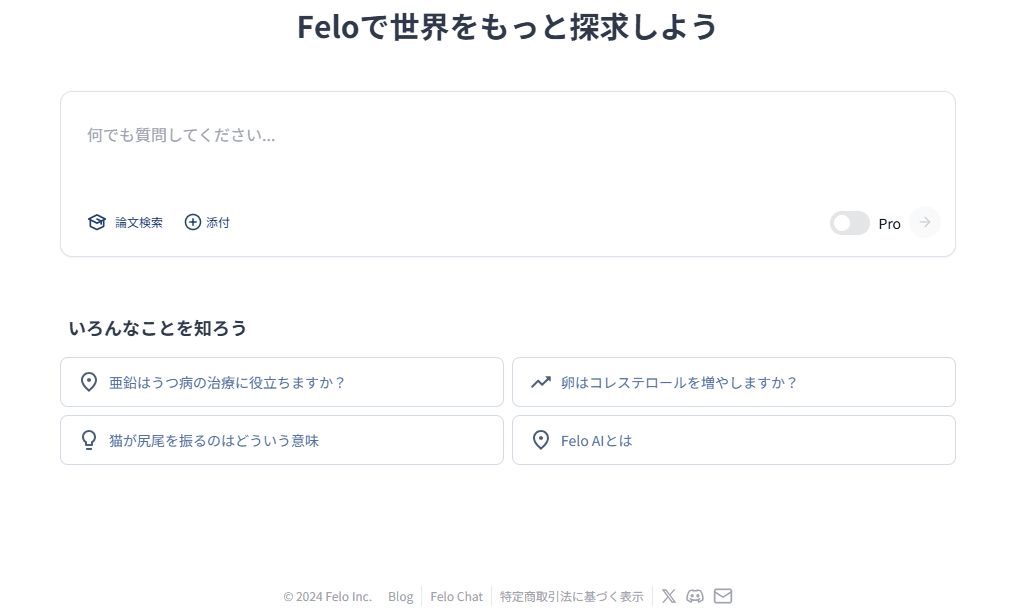
Felo AI emerges as a cutting-edge academic search engine developed by Japanese startup Felo Inc. Known for its combination of generative AI and natural language processing, Felo AI optimizes the information retrieval experience for researchers worldwide. One of its standout features is its **Cross-Language Information Retrieval (CLIR)** capability, breaking down language barriers for global academic collaboration. Users can input queries in their native language, and Felo automatically translates them, fetching academic resources across languages.
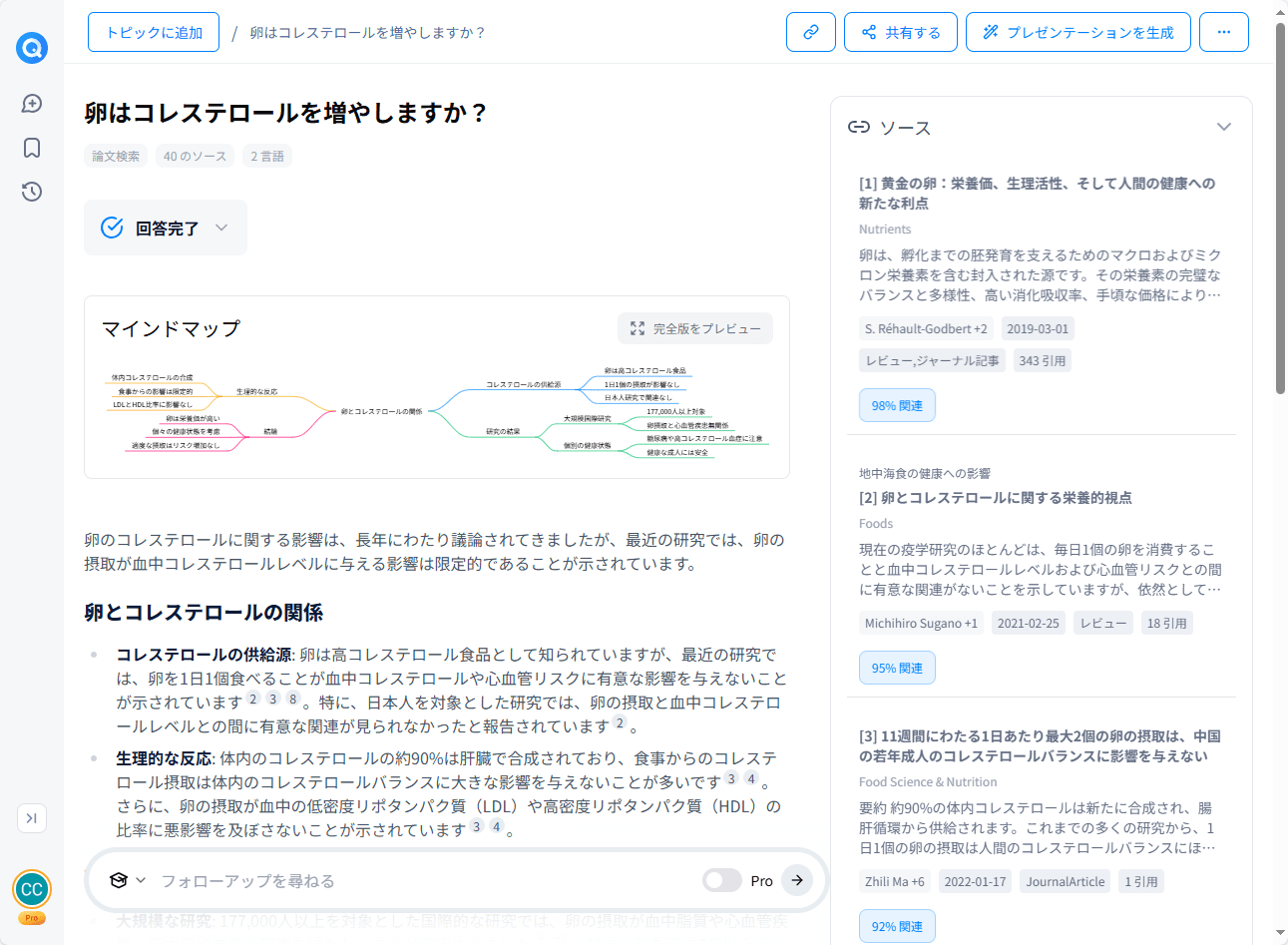
Key Features:
- Natural Language Queries: Researchers can search using conversational, everyday language instead of complex Boolean operators.
- Source Transparency: Every result is accompanied by citations to ensure trustworthiness, making it especially valuable for academic integrity.
- Document Translation and Summarization: Felo translates non-native academic articles into the user’s language while providing concise summaries tailored to their query.
- File Upload and Analysis: Researchers can upload PDFs or Word files, and Felo will summarize, interpret, and even create structured content like presentations or mind maps for better visualization.
- Global Accessibility: Access to open-source libraries and peer-reviewed journals ensures a rich database of scholarly content.
Felo AI’s potential to unify global research with advanced multilingual functionality makes it a go-to tool for tackling large-scale, multidisciplinary academic projects.
2. Wordvice AI: The Smartest Writing Assistant for Researchers
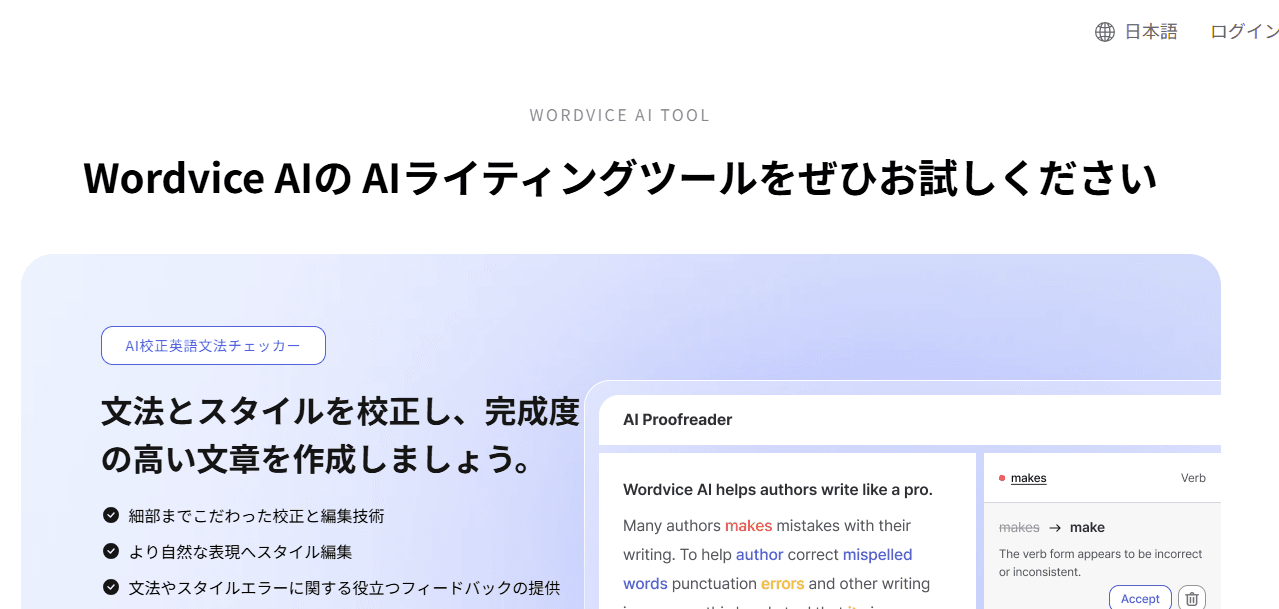
For researchers focusing on academic writing, **Wordvice AI** stands out as a top-tier, all-in-one writing assistant. While AI-powered grammar tools are common, Wordvice AI specializes in academic contexts, perfect for crafting journal papers, theses, and more.
Key Features:
- Customizable Editing Modes: Users can select from four levels of editing—Light, Standard, Intensive, or Concise—depending on how much revision they need.
- AI-Powered Paraphrasing and Tone Adjustment: Choose between five rewriting modes (Fluent, Academic, Professional-Formal, Professional-Friendly, and Creative) to adapt writing while maintaining the original meaning—ideal for reducing plagiarism risks.
- Grammar and Style Recommendations: Beyond fixing grammar or punctuation, Wordvice AI suggests alternative word choices and adjusts sentence structure for clarity and precision.
- AI Article Summarizer: Extracts the core arguments and significant points from lengthy academic texts to save time.
- Plagiarism Checker: Ensures your writing is original by cross-referencing it against millions of resources.
- 40+ Languages Supported: Useful for multilingual authors or those publishing in non-native languages.
With its deep academic focus, Wordvice AI is an essential writing companion for students, professors, and research professionals alike.
3. ChatGPT: OpenAI’s Powerful Conversational Assistant
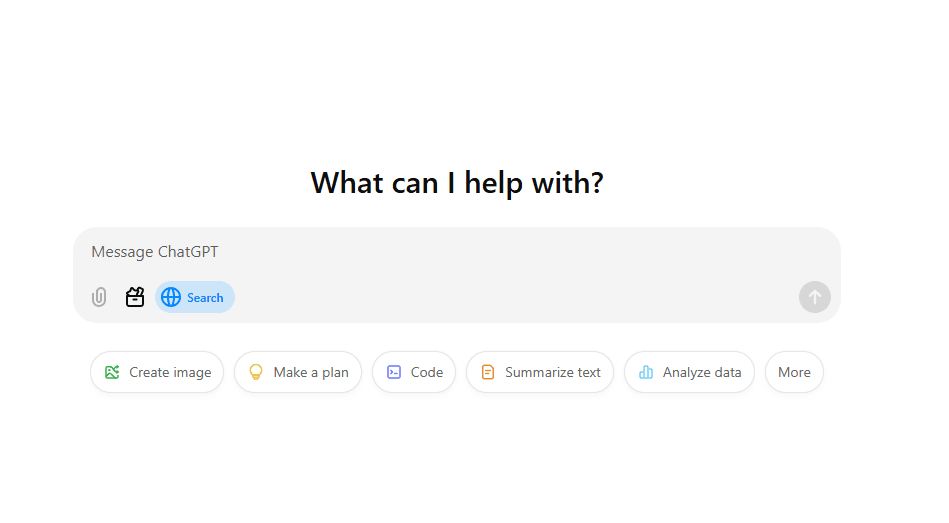
Since its launch in 2022, OpenAI’s ChatGPT has become a staple for academic inquiry. Although primarily a conversational agent, its versatility allows for significant contributions to research, particularly in the brainstorming, exploratory, and concept-explication stages.
How Researchers Benefit:
- Preliminary Research: Ask ChatGPT questions on any topic and receive informative, plain-language explanations.
- Idea Development: Use it to refine hypotheses, draft research questions, or improve the framing of experiments.
- Language Editing: Researchers can improve the clarity and coherence of drafts with ChatGPT’s editing capabilities.
- Academic Caution: While helpful, its tendency to fabricate citations or inaccuracies means researchers need to independently verify its outputs.
While ChatGPT excels in assisting the early stages of research, it’s crucial to use it with careful oversight, particularly for fact-checking and verification purposes.
4. Typeset.io: Formatting Academic Papers with Ease
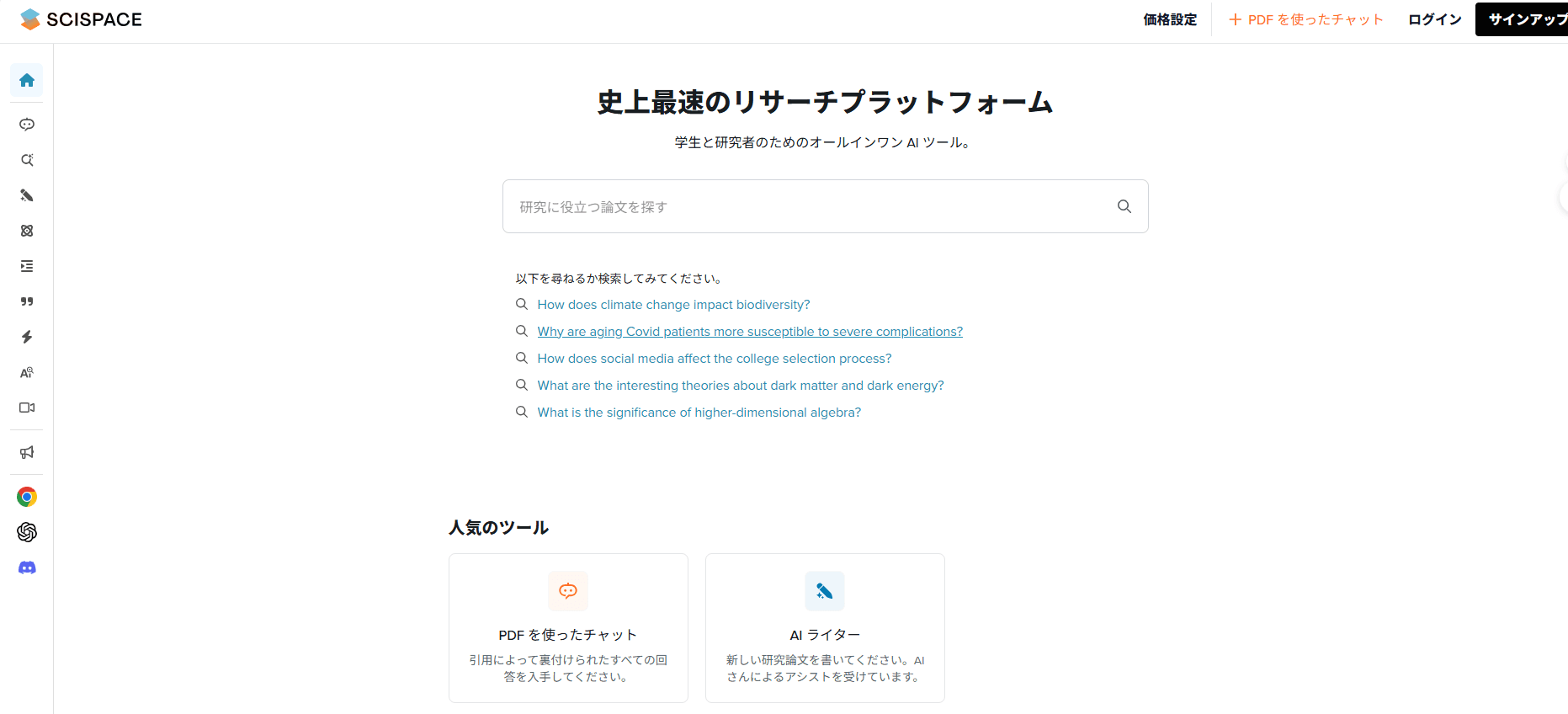
Formatting academic papers to meet publisher guidelines is often tedious, repetitive, and error-prone. Typeset.io solves this problem by providing auto-formatting and citation management for academic papers.
Key Features:
- Preset Templates: Choose from a wide range of journal-approved formats to simplify submission requirements.
- Collaborative Platform: Multiple researchers can work in real-time on the same document, enhancing research collaboration.
- Reference Management: Automatically generate citations and bibliographies in formats like APA, MLA, or Chicago.
- Plagiarism Detection: Integrated tools ensure originality in your research drafts.
Typeset.io eliminates the grunt work of formatting, letting researchers focus instead on quality content creation.
---
5. Scite.ai: Evidence-Based Citation Analysis
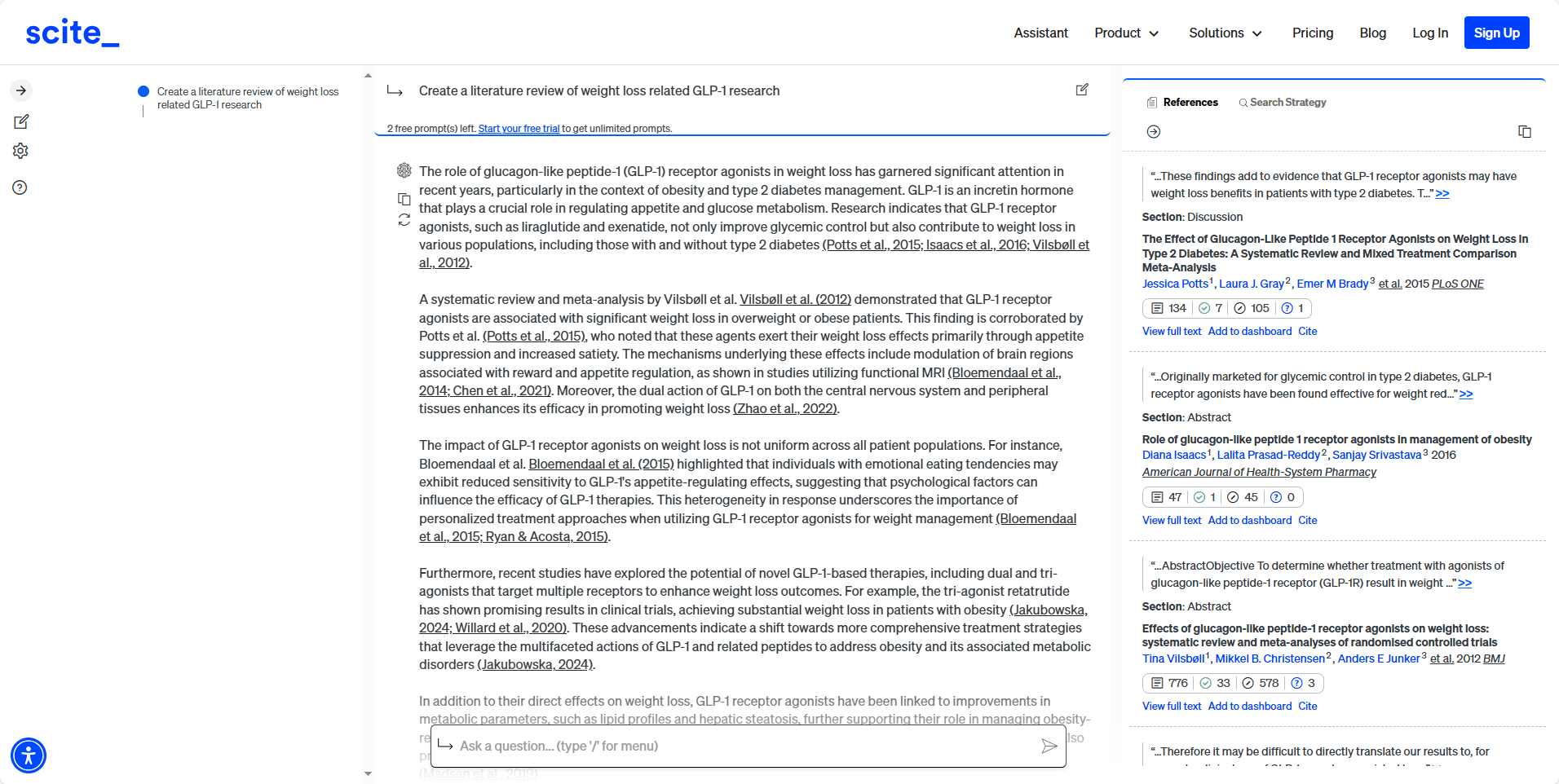
Citations tell the story of the academic reliability of a paper, and Scite.ai stands out for its ability to analyze them effectively. This AI-powered platform provides detailed citation insights to add greater depth to academic research.
Key Features:
- Dynamic Citation Analysis: See which papers support, contradict, or discuss specific claims.
- Evidence Strength Reports: Quantify the level of agreement or evidence for a particular hypothesis.
- Plagiarism Detection: Scite.ai ensures originality in citations and research writing.
With its focus on evidence-based summaries, Scite.ai can guide researchers toward high-quality sources to strengthen their arguments.
---
6. ResearchRabbit: The “Spotify” for Academic Papers
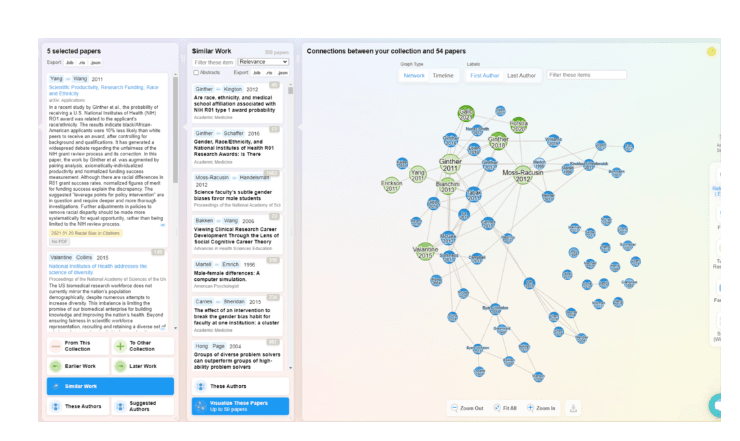
Nicknamed the Spotify of academic research, ResearchRabbit is your go-to app for discovering new academic papers. It offers personalized, AI-driven recommendations based on your research interests, much like how Spotify suggests songs.
Key Features:
- Paper Collections: Organize and create personalized collections of research papers for easier access.
- Collaboration: Share your collections with colleagues for better research cooperation.
- Visualization of Networks: Understand relationships between papers, authors, and research collaborations through graphical interfaces.
With ResearchRabbit, researchers don't just find papers—they uncover hidden connections in their field of study.
---
7. Consensus: Simplifying Data-Driven Research
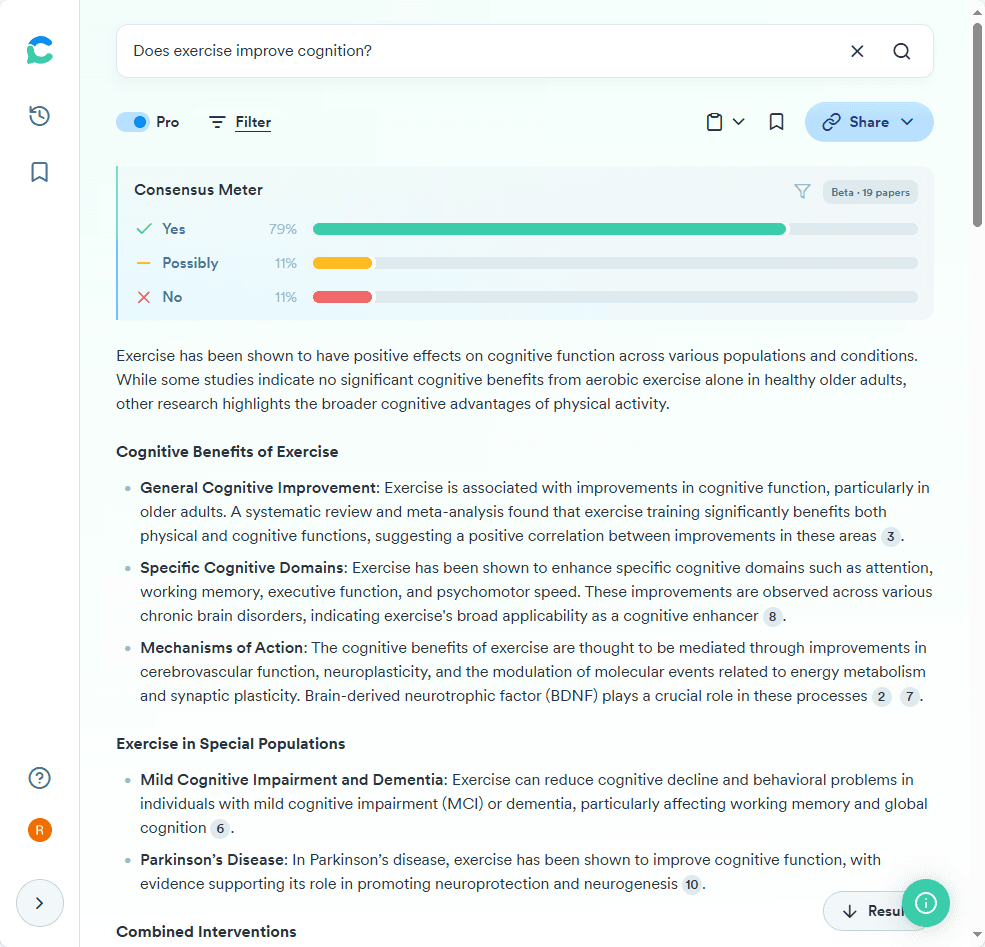
Consensus takes AI search engines to the next level, focusing on distilling insights from academic resources. It actively **extracts "Yes," "No," or "Maybe" answers** to scientific queries based on the weight of evidence in peer-reviewed papers.
Key Features:
- Evidence-Based Answer Reports: Provides evidence summaries supporting or refuting specific claims.
- Custom Summaries: Users can filter evidence by field of research or the type of query.
- GPT-4 Summarization: Leverages state-of-the-art AI models to quickly parse vast amounts of academic literature.
Consensus is an ideal solution for researchers who want fast, objectively filtered insights from scholarly literature.
---
8. Lumina.sh: Research Made Free and Accessible
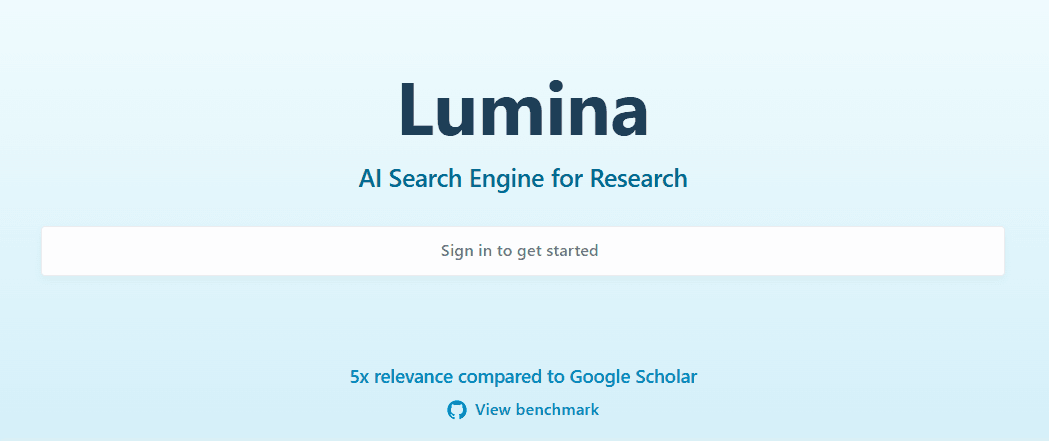
As one of the few genuinely free AI search engines tailored for academic research, **Lumina** focuses on providing fast, relevant results to researchers worldwide.
Key Features:
- Huge Database: Access over 100 million research objects, from articles to books and conference papers.
- PDF Filtering: Narrow searches to immediately find downloadable PDFs of full papers.
- AI Summarization: Use Lumina’s AI-powered summaries to extract key information from lengthy documents.
- Top-Tier Relevance: Boasts search result relevance 5x higher than Google Scholar.
Accessible and powerful, Lumina democratizes the tools of academic research, making critical information available to everyone.
---
9. Semantic Scholar: Advanced Discovery for Academics
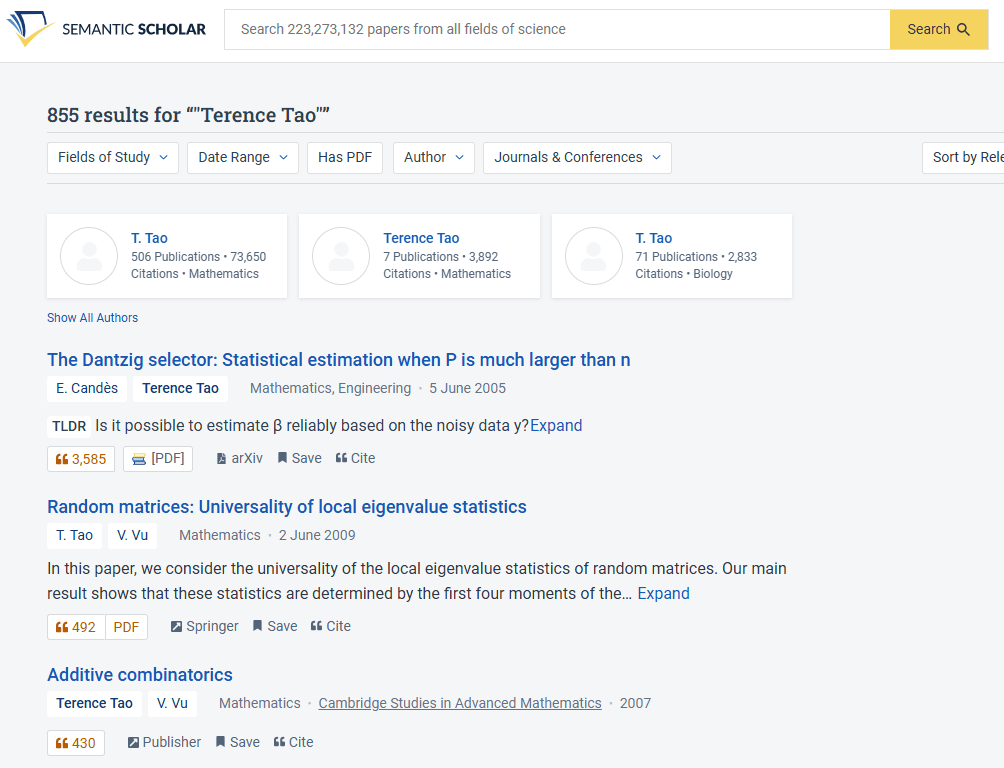
Semantic Scholar brings world-class AI to literature discovery, indexing over 200 billion academic papers in fields ranging from medicine to computer science.
Key Features:
- Automated Abstracts: Generate concise summaries (TLDRs) of academic papers.
- Comprehensive Citation Analysis: See the number of citations or the influence of a specific paper.
- Personalized Recommendations: Tailored suggestions based on research fields and reading history.
- Semantic Reader: AI-enhanced reading that highlights key parts of a paper, boosting speed and comprehension.
Semantic Scholar is ideal for academics navigating complex fields, as it connects them to relevant and high-quality literature effortlessly.
---
Final Thoughts
AI is transforming the academic research landscape, making it easier for scholars to discover insights, streamline collaboration, and present their findings. From tools like Felo AI, which focus on powerful multilingual searches, to writing aids like **Wordvice AI** and collaboration platforms such as **Typeset.io**, there’s a tool for every step of the research process. Whether you’re a graduate student embarking on your first project, or a seasoned researcher trying to uncover the latest breakthroughs, these nine tools deserve a spot in your digital toolkit as you make strides in academic innovation.
In 2025, academic research isn’t just faster—it’s smarter, thanks to AI.
